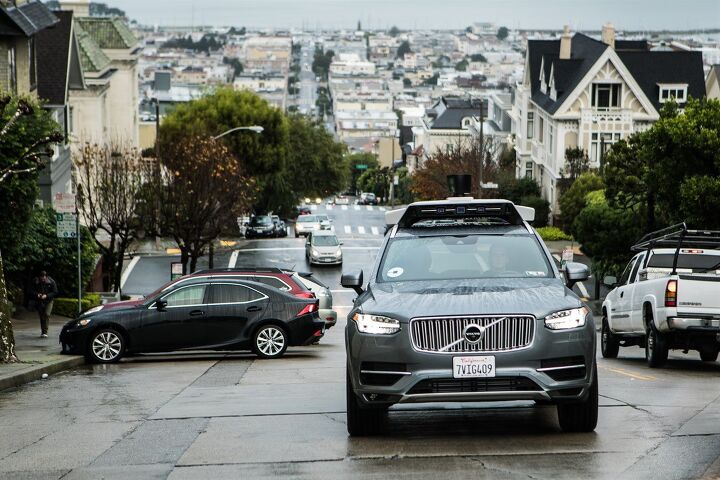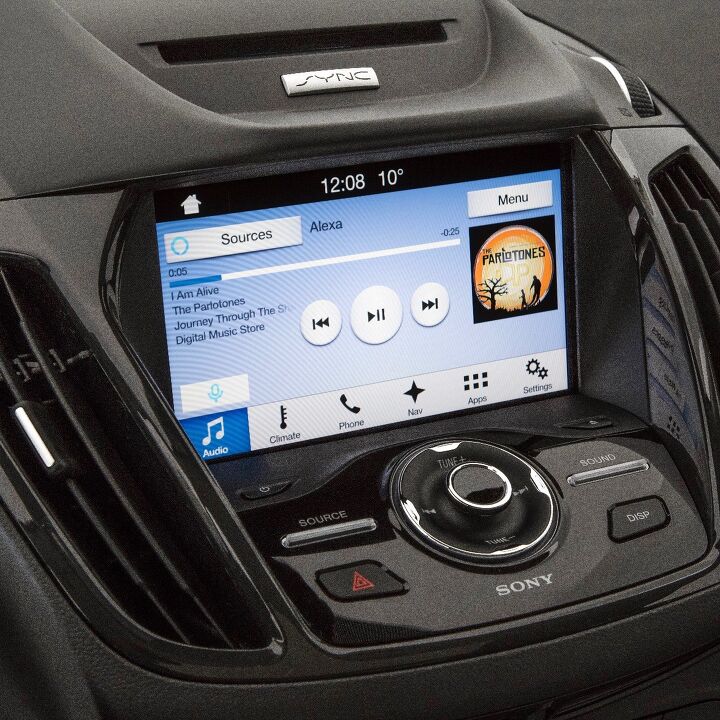#AutomotiveTechnology
BMW Acknowledges It Is 'The Ultimate Driving Machine' No Longer, Holds Rallies to Scare Employees
As vehicle sales growth gradually cools off, BMW has found itself continuing to lose ground to its competitors — but it wasn’t always this way. The company spent years as the luxury brand par excellence before seeing the likes of Jaguar, Tesla, and historic rival Mercedes-Benz begin syphoning off its consumer base.
It looked to be in denial for some time, but it is now evident that Bayerische Motoren Werke has become painfully aware of its own shortcomings. The company has even begun holding employee rallies to address its problems and potentially scare the crap out of workers. Since January, the German automaker has taken its marketing team, factory managers, 14,000 engineers, and a portion of its general workforce through day-long events that illustrate just how far it has fallen.
Consumer Reports Downgrades Tesla Models Over Safety Concerns
Consumer Reports has been pretty hard on Tesla Motors over the past year. The primary point of contention in 2016 was the automaker’s perceived misrepresentation of the company’s Autopilot feature. CR wanted the automaker to disable hands-free operation until its system could be made safer and insisted that it make clear to consumers that it was not capable of true self-driving capability.
While Tesla addressed some of those concerns with its 8.0 software update last autumn, the consumer advocacy publication said it didn’t go nearly far enough — demanding that Tesla stop calling it Autopilot, disable automatic steering, and quit beta testing on its own customers.
Continuing those safety concerns into 2017, Consumer Reports has downgraded both of Tesla’s existing models, claiming the company failed to enable automatic emergency braking features it said would come as standard equipment. This is perplexing, as Model S and Model X vehicles equipped with first-generation Autopilot systems actually had this function.
Uber Loses Another Executive as Self-driving Program Head Quits
Despite having put in as much testing time as most of the major players, experts have remained skeptical of Uber’s autonomous driving program. This isn’t because it lacks the necessary technology or hardware, but because it lacks a stable corporate environment. There have been no shortage of ugly headlines surrounding the company this year, and it’s beginning to hemorrhage essential staff members. This week, Uber lost its vice president of global vehicle programs, Sherif Marakby, and sustained another blow to its self-driving aspirations and pride.
While the ride-haling service has declined to elaborate on the reasons for Marakby’s exit, he had only been with the company since last April. After twenty-five years with Ford, Uber poached him specifically for his expertise in autonomous development and electronic safety systems.
This loss follows the departure of Uber’s president, vice president of product and growth, senior director of engineering, its head of communications, head of AI labs, and numerous members of its self-driving programs — all within the last few months.
Which Companies Are Winning the Autonomous Vehicle Race?
Ford’s head of research, Ken Washington, suggests that the general public won’t be able to buy a fully autonomous vehicle until sometime between 2026 and 2031. That’s a little later than CEO Mark Fields’ claim of “by 2025.”
We already know that companies are making timeline promises they can’t really keep but, with Ford currently working on an autonomous ride-sharing fleet to be used on public roadways in 2021, the amount of wiggle-room in Washington’s estimate is a little unsettling. If the technology is sufficient to shuttle people around in a taxi, shouldn’t it be equally adept in accomplishing that task regardless of what seat the human is occupying? Exactly who is leading in this race?
Volvo Sticks With Uber Despite Autonomous Crash and Stolen Tech Litigation
After Friday’s high-speed crash, it’s back to business as usual for Uber’s autonomous programs. Last week, one of the company’s self-driving Volvos was struck by a flesh-piloted crossover — causing Uber to temporarily ground its entire test fleet. With the exception of the wrecked unit, all of those vehicles are now back in action as the business attempts to get on with R&D while simultaneously moving its legal dispute with Waymo out of the public eye.
Meanwhile, Volvo’s 300-million-dollar alliance with the ride-sharing company remains unperturbed. In the crash’s aftermath, Volvo maintained that it would continue to support Uber and preserve the partnership.
Suppliers Say Automakers Are Just Guessing the Timeline for Self-Driving Cars
President Donald Trump received a tour of the American Center for Mobility this week. He did not, however, discuss the federal funding of the Michigan-based autonomous testing and development facility. Instead, the site was used as a location for the president to discuss regulatory policies and meet with automotive executives. Little was said on the subject of self-driving cars.
Still, automakers routinely remind us that autonomous vehicles are right around the corner. Ford says it can have autonomous cars rolling out by 2021, Audi and Nissan have said 2020, and Volkswagen has claimed it’ll be ready for self-driving models in 2019. Tesla — which has been pioneering the technology longer than most — has stated it has the hardware necessary in its current production vehicles and would have a bulletproof system installed in 2018, anticipating regulatory approval in 2021. However, suppliers are predicting much less optimistic timelines for self-driving cars — and the dates given vary wildly.
Intel Scoops Up Autonomous Tech Company Mobileye for a Whopping $15.3 Billion
After collaborating with Mobileye to help BMW put a fleet of roughly 40 self-driving test units on the road before the end of this year, Intel has decided that it would rather just buy the cow. The acquisition of autonomous driving technology leader Mobileye is going to cost the computing giant a colossal $15.3 billion.
More specifically, an Intel subsidiary will offer $63.54 per share for all issued and outstanding shares, which carries an equity value of $15.3 billion and an enterprise value of $14.7 billion. No matter how you slice it, it’s the world’s largest purchase of a company solely focused on the autonomous driving sector. The motivation is clear. Mobileye accounts for around 70 percent of the global market for modern driving aides, anti-collision systems, and advanced autonomous safety.
The CIA Allegedly Considered Connected Cars as 'Potential Mission Areas' for Hacking
Automakers are hurriedly trying to implement connected vehicle technology and autonomous solutions to entice consumers, though there remains an underlying phobia among the general public that isn’t without a basis in reality. Cyber security is considered essential to the evolution of self-driving cars and plays an equally important role in the vehicles of today that offer enhanced connectivity.
Since modern automobiles rely so heavily on computers, there’s a plethora of elements that hackers could target. However, these hackers don’t necessarily need to operate outside of the law.
Embedded in a WikiLeaks analysis of documents allegedly acquired from the Central Intelligence Agency is an apparent interest in hacking automobiles. The most terrifying takeaway from those files? The claim that the CIA could theoretically use the systems in modern passenger vehicles to conduct “nearly undetectable assassinations.”
Amazon's 'Alexa' is the Automotive Life Partner You've Apparently Been Missing
Amazon’s Echo is a voice-operated smart device for your residence that, despite being notably gimmicky, has become increasingly popular with geeky homeowners. You can ask it for the weather, to read you a book, request a certain song, buy things for you online, adjust the thermostat, dim the lights, or schedule your calendar. My father has one and, because the device represents itself through a pleasant-sounding female voice calling itself Alexa, my mother refers to it as “his second wife.”
Soon, Alexa and the associated Echo technology will be available on Ford, Volkswagen, Hyundai, and BMW branded automobiles. The new feature should offer a catalog of in-car commands and can be set-up to work in tandem with a home device to do things like flip on the the lights prior to pulling into the driveway. While this might not drastically enhance your quality of living, it will feel incredibly futuristic for about two weeks.
Ford Worries You're Not Able to Understand This Round, Shiny Thing
Allow me to paint you an all-too-common picture. You’ve pulled your vehicle into a parking space at the mall and need to get inside so that you can spend several hundred dollars at the Disney Store as quickly as possible. In your excitement you begin struggling frantically against the seatbelt. There is a moment of terror before you manage to unclip yourself, open the door, and begin shuffling your woeful husk toward the building’s entrance. Suddenly, you hear a loud crash behind you. With your mouth partially agape, you turn your vacant eyes back toward your vehicle and realize that you have, once again, neglected to place it in park and turn off the ignition.
Don’t be embarrassed, this happens to everyone.
A lot of motorists simply forget what to do after they’ve stopped their vehicle and are ready to exit. While the proper procedure actually involves taking the vehicle’s transmission out of drive and putting it into park, a common mistake is to leave it in drive or neutral with the keys locked in the ignition or motor still running and just walk away. Thankfully, Ford has announced that the 2017 Fusion will benefit from an innovative new “Return to Park” technology that places the car safely into park for you!
This New Parking Enforcement Device Really Sucks
There is a new form of embarrassment for rule-breakers of the parking variety. It’s an irremovable suction-based clamshell blindfold for your car that inconveniences you to the point of having to cooperate with authorities.
Devised by Barnacle Parking as a friendlier alternative to the infamous “boot,” the device is already being tested in a few American cities and might one day make it to yours.
BMW, Daimler, Ford, and VW Are Planning a High-Power EV Charging Network to Connect Europe
Due to a wildly cooperative joint venture between German carmakers and the Ford Motor Company, owning an electric vehicle in Europe will soon become far more practical.
Daimler AG, BMW, Ford, and Volkswagen Group intend to establish a continent-wide network of ultra-fast 350 kW capacity charging sites that will begin juicing up vehicles as early as next year.
Ferrari Officially Abandons the Manual Gearbox
Perhaps unsurprisingly, Ferrari has officially added its name to the list of automakers that will no longer offer a manual transmission.
The company’s chief technology officer, Michael Hugo Leiters, explained the decision at the Paris Auto Show last week, citing performance and technology as the motivating factors.
Goodbye, gate.
Future Of Auto Industry Linked To Silicon Valley
As companies like Google, Tesla and Uber seek to reshape the auto industry in their own ways, more automakers and suppliers are beating a path toward Silicon Valley and the Center for Automotive Research Stanford to help adapt to the new reality.





























Recent Comments